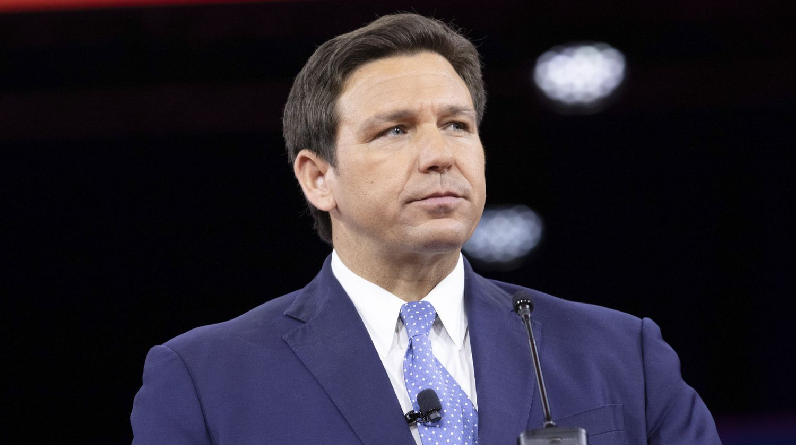Futures trading is a type of investment where you buy or sell a contract that specifies the delivery of a certain asset, such as commodities, stocks, or currencies, at a predetermined price and date in the future. Futures trading is a popular way to speculate on price movements in the financial markets, and traders can participate in trading in the UK through regulated futures brokers.
As this investment method becomes more and more popular in the nation, you may be wondering how you can take advantage of opportunities in the market. If you are considering futures trading, you can read this guide to become familiar on what futures trading is exactly, some of its advantages, how you can trade futures, and the considerations you should have before participating in futures exchanges. Without further ado, let’s dive in.
How does futures trading work?
Firstly, all traders should know that in the UK, futures trading typically takes place through exchanges such as the London Metal Exchange (LME), the Intercontinental Exchange (ICE) Futures Europe, and the London International Financial Futures and Options Exchange (LIFFE).
In a futures trade, there are two parties: the buyer and seller of the contract. Both parties first agree to buy or sell an asset at a specific price and date in the future with standardised contracts. The buyer agrees to take delivery of the asset at the specified date, while the seller agrees to provide the asset at the specified price.
In futures trading, traders can speculate on the future direction of the price of the underlying asset without having to actually owning it. This is much like other forms of derivative trading, such as options and CFD trading.
An example of futures trading
The best way to illustrate how futures trading works is through an example. Let’s say you are a farmer who produces wheat, and you want to protect yourself against the risk of a price drop in the future. You could enter into a futures contract to sell your wheat at a set price, say £5 a bushel, for delivery in three months. This would give you some certainty about your revenue and protect you against any price drops in the meantime.
On the other side of the trade, a speculator who thinks the price of wheat will increase in the next three months may enter into a futures contract to buy wheat at £5 per bushel. If the price of wheat does rise, the speculator can then sell the contract for a profit, while the farmer would have to sell their wheat at the agreed-upon price, regardless of any price increases.
Some advantages of futures trading
The reason why futures trading is so popular is because it provides plenty of flexibility for traders. Firstly, traders can speculate on the future price of a wide range of underlying assets, which means they can use futures trading to diversify their investment portfolios. It also reduces their overall risk of trading, while simultaneously providing for them more opportunities to profit from fluctuations in multiple markets.
On top of that, futures trading allows traders to trade with leverage. This means they can open larger positions with a small initial margin deposit, and they can potentially make larger profits than they otherwise would have been able to, provided that the markets move in their favour. However, it is essential to note that leverage is a double-edged sword, and if markets move in unfavourable directions, it can also cause significant losses.
Thirdly, futures trading is popular because it is a regulated market. The UK government and financial regulators have put in place a range of measures to protect futures traders and to ensure that the markets are transparent and fair. This gives futures traders peace of mind when participating in markets.
Finally, the futures market is a hugely liquid one, which means traders can enter and exit positions quickly. This is because there is a high level of trading activity in general, especially in the major futures markets in the UK. With high liquidity also comes fairer prices and better ones, as well as minimal slippage when entering and exiting positions due to high supply and demand in the markets.
Key points to consider before trading
If you are interested in futures trading in the UK, it is essential to do your research and know what you are doing before you commit your hard-earned money.
Choose a reputable and regulated broker
The first thing you should think about on your journey to trading is to make sure you choose a regulated and reputable futures broker. In the UK, the Financial Conduct Authority (FCA) oversees and regulates futures trading and related financial and investment services. The FCA ensures brokers adhere to strict rules and guidelines that can protect traders like you from fraud and malpractice, giving you peace of mind. Therefore, you should make sure your broker is licensed and regulated by the FCA.
Understand the risks involved
It would also be in your best interest that you understand the risks involved in trading futures. In this highly speculative activity, futures can be a risky investment. Understand what market risk is before you start trading and understand how to interpret and predict the market in terms of stability and volatility. You should be aware of the various economic and political factors that can affect the price of futures contracts and the assets on which they speculate.
Learn about the asset classes to trade
Next, when you are trading futures, you are essentially speculating on certain assets, so you should understand how they move in the markets. These assets can include commodities, currencies, stocks, and indices. You should understand the factors that affect the prices of these assets and pay attention to their historical price charts.
Understand future contract specifications
Traders participate in futures trading through purchasing contracts that act as legal agreements. Each contract has specific contract specifications that determine the delivery date, contract size, tick size, and margin requirements. It is vital that you understand these specifications and you are familiar with the terms of your contract. You should also ensure you are aware of the trading hours of the futures exchange you participate in and the settlement procedures of that market.
Develop a trading strategy
Finally, you should never start trading without a sound trading strategy. A proper trading strategy includes a consideration of your investment goals, style, and preferences. This means knowing how you will approach trading, the analysis methods you will use, and the risk management tools you will employ. Having an established trading strategy can help you identify potential trading opportunities in the markets in which you want to participate.
The bottom line
Futures trading in the UK can provide plenty of opportunities for traders who are interested in speculating on assets. However, it is essential to remember that all forms of trading carry a certain level of risk. There is no such thing as guaranteed profits, and you should therefore always have a risk management strategy in place before you trade with your hard-earned money. With the right knowledge and tools, you can become a successful futures trader and potentially profit from the volatile financial markets.








